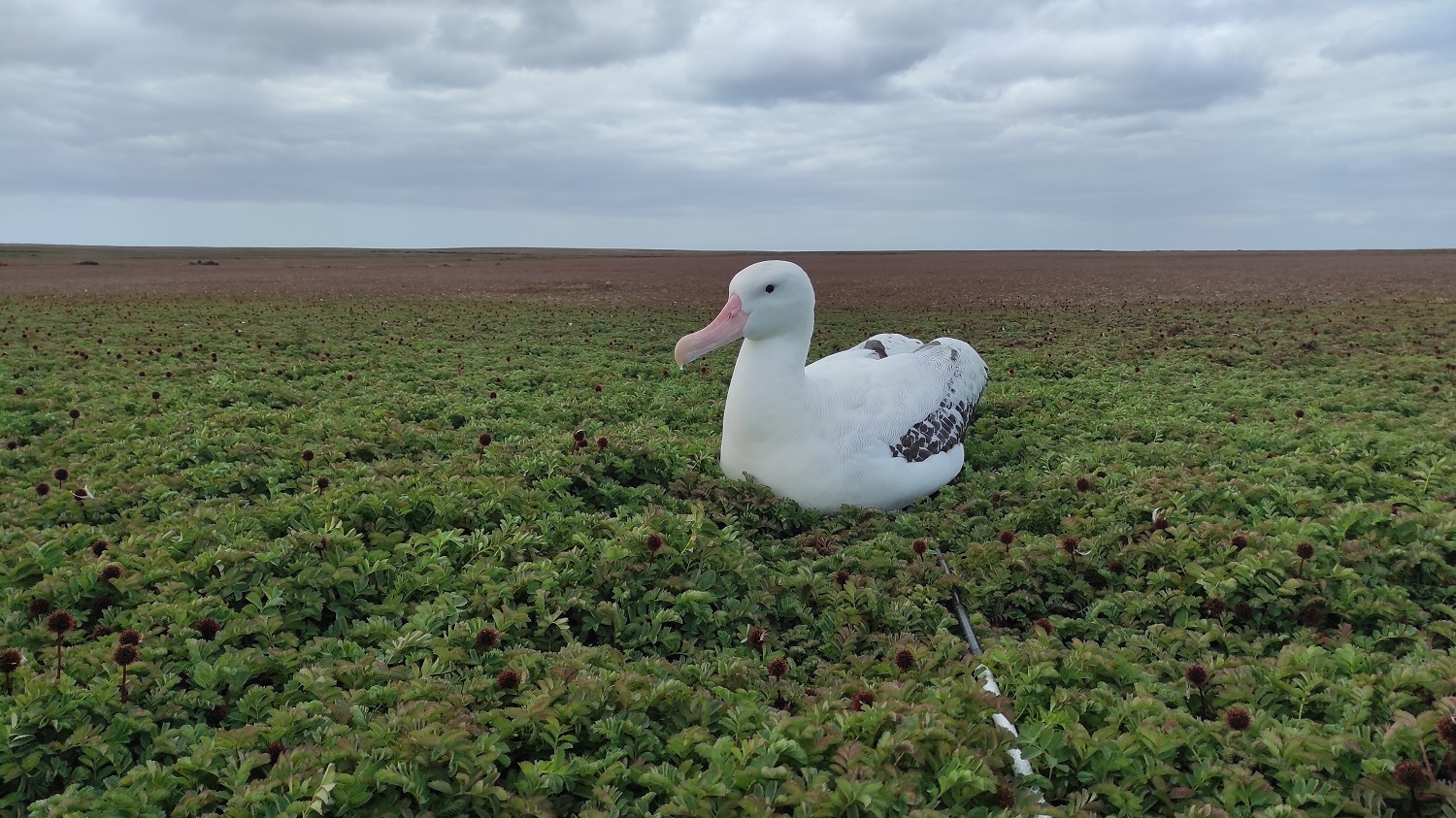 A Wandering Albatross on Kerguelen
A Wandering Albatross on Kerguelen
Pierrick Blanchard (Centre de Recherche sur la Biodiversité et l’Environnement (CRBE), Université de Toulouse, France) and colleagues have published open access in the journal Ecological Society of America on the findings of a field experiment on the effect of feral cats on Wandering Albatrosses on the main island (Grande Terre) of the Kerguelen Islands.
The paper’s abstract follows:
“Invasive alien species are a major threat to seabird species, and the number of impacted species is still increasing. A recent study revealed for the first time that feral cats predated a large albatross species and that without cat control, some albatross populations would markedly decline. We examined this new predator–prey system by individually monitoring known-age wandering albatross chicks with camera traps in a colony experimentally divided into zones with and without cat control. Our design allowed us to investigate how cat control influenced cat abundance and how this in turn influenced the probability for a chick to be predated by a cat. After cat controls, cat abundance was lower in controlled zones than in uncontrolled zones, while a survival analysis showed that the probability for a chick to die from cat predation depended on the zone but not on cat abundance. Our monitoring also provided a fine-scale investigation of the various sources of chick mortality. In addition to cat predation (24% of mortality overall), our data documented predation by giant petrels, for the first time in Kerguelen, and revealed a strong and unexpected effect of nest flooding on chick mortality. Overall, our results underline the need for future studies investigating interindividual variability in cat diet and spatial ecology.”
Reference
Blanchard, P., Delord, K., Bodin, A., Guille, K., Getti, T., and Barbraud, C. 2024. “Impact and Control of Feral Cats Preying on Wandering Albatrosses: Insights from a Field Experiment.” Ecosphere 15(2): e4792. https://doi.org/10.1002/ecs2.4792
4 March 2024

 English
English  Français
Français  Español
Español